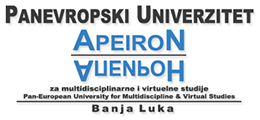The Role of Physical Exercise in Reducing Adhd Symptoms in School-Aged Children
Volume 14, Issue 2 (2024)
Volume 14, Issue 2 (2024)
The Role of Physical Exercise in Reducing Adhd Symptoms in School-Aged Children
Abstract:
Attention Deficit Hyperactivity Disorder
(ADHD), characterized by developmentally inappropriate
levels of attention, hyperactivity, and impulsivity, is
considered one of the most common neurodevelopmental
disorders in school-aged children. The number of children
diagnosed with ADHD is steadily increasing in most
developed and developing countries. This disorder often
coexists with other neurodevelopmental disorders such
as conduct disorder, specific learning disorders, depression,
anxiety, and mood disorders. The global prevalence
rate of ADHD is over 5%, and it is about three times
more common in males than in females. Symptoms of attention
deficit and hyperactivity disorder can hinder academic
progress. According to numerous studies, physical
activity can help alleviate symptoms and enable students
to better focus on school and other daily tasks. Therefore,
this paper is dedicated to analyzing the positive impacts
of organized physical exercise on ADHD syndrome in
school-aged children through a review of some key research
studies.
Keywords:
attention deficit, hyperactivity, school-age, physical exercise
Full Text:
References:
American Psychiatric Association, & DSM Task Force. (2017). Diagnostic and statistical manual of mental disorders: DSM-5. American Psychiatric
Association.
Archer, T. & Kostrzewa, R. M. (2012) Physical exercise alleviates ADHD symptoms: regional deficits and development trajectory. Neurotoxicity
Research, 21, 195–209.
Berwid, O. G. & Halperin, J. M. (2012) Emerging support for a role of exercise in attention-deficit/hyperactivity disorder intervention planning.
Current Psychiatry Reports, 14, 543–551.
Chan, S.; Zhang, D.; Bögels, S.M.; Chan, C.S.; Lai, K.Y.C.; Lo, H.H.M.; Yip, B.H.K.; Lau, E.N.S.; Gao, T.T.; Wong, S.Y.S. (2018). Effects
of a mindfulness-based intervention (MYmind) for children with ADHD and their parents: Protocol for a randomised controlled trial.
BMJ Open 8, e022514.
Chang, Y. K., Liu, S., Yu,H.H.& Lee, Y.H. (2012) Effect of acute exercise on executive function in children with attention deficit hyperactivity
disorder. Archives of Clinical Neuropsychology, 27, 225–237.
Choi, J. W., Han, D. H., Kang, K. D., Jung, H. Y. & Renshaw, P. F. (2015) Aerobic exercise and attention deficit hyperactivity disorder: brain
research. Medicine and Science in Sports and Exercise, 47, 33–39.
Christiansen, L.; Beck, M.M.; Bilenberg, N.; Wienecke, J.; Astrup, A.; Lundbye-Jensen, J. (2019). Effects of Exercise on Cognitive Performance
in Children and Adolescents with ADHD: Potential Mechanisms and Evidence-based Recommendations. J. Clin. Med. 8, 841.
Dong, L., Deng, W., Wenlai, C., Jin, Y., Wanli, Z., and Chenmu L. (2023) Effects of different physical activity interventions on children with
attention-deficit/ hyperactivity disorder: A network meta-analysis of randomized controlled trials. Front. Neurosci. 17:1139263.
Erskine H. E., Norman R. E., Ferrari A. J., Chan G. C., Copeland W. E., Whiteford H. A., Scott J. G. (2016). Long-term outcomes of attentiondeficit/hyperactivity disorder and conduct disorder: A systematic review and meta-analysis. Journal of the American Academy of Child
and Adolescent Psychiatry, 55(10), 841–850.
Gapin J, Etnier JL. (2010) The relationship between physical activity and executive function performance in children with attention-deficit
hyperactivity disorder. J Sport Exerc Psychol 2010;32:753–63.
Gapin, J. I., Labban, J. D. & Etnier, J. L. (2011) The effects of physical activity on attention deficit hyperactivity disorder symptoms: the evidence.
Preventive Medicine, 52 Suppl 1, S70–S74.
Golubovic, S., & Milutinovic, D. (2014). Benefits of physical exercises in developing certain fitness levels in children with hyperactivity.
Journal of Psychiatric and Mental Health Nursing, 21(7), 594-600.
Heijer, A.E.; Groen, Y.; Tucha, L.; Fuermaier, A.B.; Koerts, J.; Lange, K.W.; Thome, J.; Tucha, O. (2017) The effects of physical exercise on
cognition and behavior in children and adults with ADHD: A systematic literature review. J. Neural Transm. 124, 3–26.
Hoza, B., & Smith, A. (2014). A randomized trial examining the effects of aerobic physical activity on attention-deficit/hyperactivity disorder
symptoms in young children. Journal of Abnormal Child Psychology, 43(4), 655-667.
Kang, K. D., Choi, J. W., Kang, S. G. & Han, D. H. (2011) Sports therapy for attention, cognitions and sociality. International Journal of Sports
Medicine, 32, 953–959.
Mackune, A., Puatz, J., Lombard, J. (2003) Behavioural response to exercise in children with attention-deficit/hyperactivity disorder. SA Sports
Medicine, 15, 17–21.
Meppelink, R. (2016). Meditation or medication? Mindfulness training versus medication in the treatment of childhood ADHD: A randomized
controlled trial. BMC Psychiatry, 8(2), 33-36.
Montalva, F., Andrades, O., Castillo, A.(2022). Effects of Physical Activity, Exercise and Sport on Executive Function in Young People with
Attention Deficit Hyperactivity. Journal Investigation in Health Psychol. Educ.12, 61–76.
Pontifex, M. B., Saliba, B. J., Raine, L. B., Picchietti, D. L. & Hillman, C. H. (2013) Exercise improves behavioral, neurocognitive, and scholastic
performance in children with attention-deficit/ hyperactivity disorder. Journal of Pediatrics, 162, 543–551.
Rowland AS, Lesesne CA, Abramowitz AJ. (2002). The epidemiology of attention-deficit/hyperactivity disorder (ADHD): a public health
view. Ment Retard Dev Disabil Res Rev; 8:162–70.
Sibley, M.H.; Swanson, J.M.; Le Arnold Hechtman, L.T.; Owens, E.B.; Stehli, A.; Pelham, W.E. (2017). Defining ADHD symptom persistence
in adulthood: Optimizing sensitivity and specificity. J. Child Psychol. 58, 655–662.
Tantillo, M., Kesick, C. M., Hynd, G. W. & Dishman, R. K. (2002) The effects of exercise on children with attention-deficit hyperactivitydisorder.
Medicine and Science in Sports and Exercise, 34, 203–212.
Urbina, A.J.; Garcia-Hermoso, A.; Sanchez-Lopez, M.; Pardo-Guijarro, M.J.; Santos, J.L.; Martinez-Vizcaino, V. (2015) The effects of physical
exercise in children with attention deficit hyperactivity disorder: A systematic review and meta-analysis of randomized control trials.
Child Care Health Dev. 41, 779–788.
Verret, C., Guay, M. C., Berthiaume, C., Gardiner, P. & Beliveau, L. (2012) A physical activity program improves behavior and cognitive functions
in children with ADHD: an exploratory study. Journal of Attention Disorders, 16, 71–80.
Wigal, S.B.; Emmerson, N.; Gehricke, J.G.; Galassetti, P. (2013). Exercise: Applications to childhood ADHD. J. Atten. Disord. 17, 279–290.
Yu Zang (2019) Impact of physical exercise on children with attention deficit hyperactivity disorders. Evidence through a meta-analysis.
Medicine 98:46






